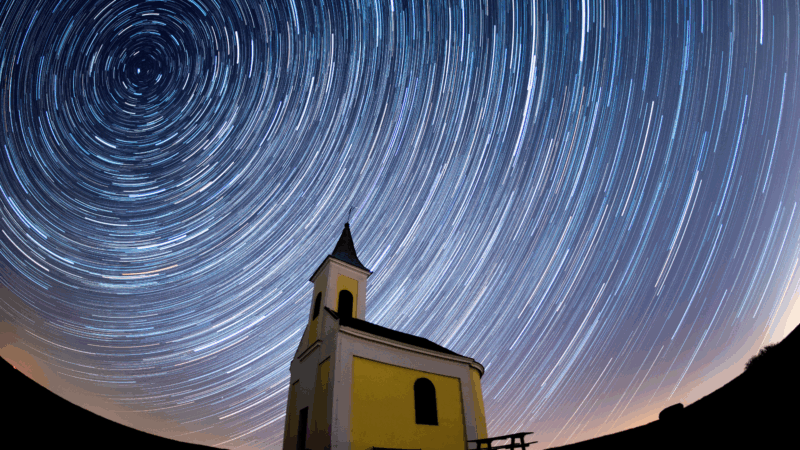The Lyrid meteor shower is expected to dazzle the night sky beginning this week
The Lyrid meteor shower, one of the oldest annual meteor showers known to humankind, will once again grace Earth’s sky beginning this week.
This year, the meteors are expected to come into view on Wednesday night and last through April 25.
What exactly are the Lyrids?
The Lyrids, like all meteor showers, are the flying trails of debris left behind by comets, according to Bill Cooke, the lead of NASA’s Meteoroid Environments Office. This shower is the litter of Comet Thatcher, first documented in 1861 by A.E. Thatcher.
“Thatcher left a debris trail that the Earth runs into the third week in April of every year, and that causes the shower when these bits of debris enter our atmosphere and burn up,” Cooke told NPR.
Amateur stargazers have come to know those pieces of incinerated detritus as shooting stars, darting meteors and fireballs.
Earthlings have been observing the Lyrids’ sky show for thousands of years, with the first recorded sighting in 687 B.C.
Thatcher is a relatively little-known comet that takes more than 400 years to orbit the sun, Cooke said. The last time it was in Earth’s line of sight was right around the start of the Civil War.
The comet itself will not enter Earth’s view again until the late 23rd century.
Coincidentally, the Lyrids will coincide with another shower, the Eta Aquariids, which is expected to begin on Friday and last through May 28th. That shower is expected to peak on May 5 and 6, according to the American Meteor Society.
How can I watch the meteor shower?
The peak of the Lyrid shower this year is expected around April 21 and 22, when the tail is at its peak.
Luckily, no special equipment is required to observe the shower’s brilliant lights. The main requirement is a clear, dark sky.
“You’re not going to see meteors from downtown Manhattan or Central Park,” Cooke said. “You need to find the darkest sky you can, you need to lay flat on your back and look away from the moon.”
Give yourself 30 to 45 minutes for your eyes to adjust to the dark, Cooke said — and from there, simply enjoy the show.
Surgeon general nominee Means questioned about vaccines, birth control and financial conflicts
During a confirmation hearing, senators asked Dr. Casey Means about her current positions and her past statements on a range of public health issues.
This novel about family drama is so good you may want to re-read it immediately
Allegra Goodman's new novel is called This Is Not About Us, but critic Maureen Corrigan says that title is coy: Readers are bound to see aspects of themselves and their families in these pages.
Actor Stellan Skarsgård doesn’t believe in bad guys
Skarsgård plays a filmmaker struggling to connect with his two grown daughters in Sentimental Value. As the father of eight, the Swedish actor says he understands the tension his character faces.
Kalshi reveals insider trading case against editor for MrBeast
With prediction markets booming, so have concerns about insider trading. Now, Kalshi has disclosed its first public actions against accounts suspected of trading on confidential information.
Greetings from Jordan’s Wadi Rum desert, where patches of green emerge after winter rains
Wadi Rum's otherworldly landscape is where Star Wars movies and The Martian were filmed. In late winter, plants emerge in this desert — but some are toxic to camels, so their herders must protect them.
Lack of transportation keeps many Alabamians from working. Rural public transit programs are trying to help
While lack of transportation is a major employment barrier in Alabama, few people take public transit to work. That dynamic is even more pronounced in rural areas.








